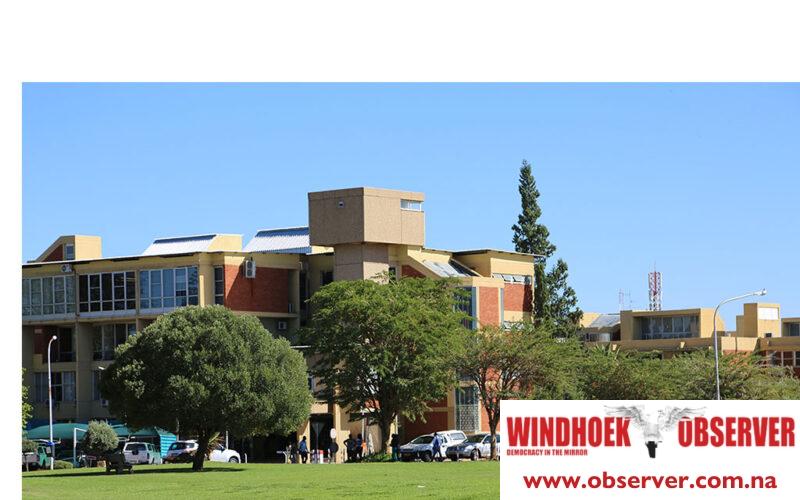Ester Mbathera
The Affirmative Repositioning Student Commands (ARSC) faced an unexpected hurdle when attempting to host its opening ceremony at the main campus of the University of Namibia (UNAM) in Windhoek on Friday afternoon.
This came after their approval to host the event on campus was retracted by the assistant director for student services and residences, Lazarus Shatipamba, a day before the event. In a letter to ARSC dated April 25th, seen by the Windhoek Observer, claimed that the booked venue was no longer available.
“We are kindly advising you to make alternative arrangements to host your event somewhere off the university premises,” he said.
ARSC chairperson Onesmus Iyambo said they learned that the venue was available but that the communication was an attempt to bar their association from hosting their event on campus.
“He came back to me with a letter saying that the reason for us not to host the event is based on the internal memo that was issued by the Pro Vice Chancellor of Finance and Administration, Prof. Ellen Namhila, which stated that the university is taking proactive measures to ensure that venues and facilities of the university should not be used for political campaigns, recruitments, and other activities. But we are a student body, not a political party,” he said.
The ARSC event was scheduled a day after the Swapo Party Youth League (SPYL) held its recruitment drive on campus.
Iyambo explained that on Friday they decided to go against the new directive and went to the venue but found it locked. He added that upon observing that security officials were also on high alert, they cancelled their event.
“We are a student organization that is registered with UNAM under the Directorate of Student Affairs just like all other student bodies. Once you are registered, you are allowed under the constitution of the university and student council to host any type of event. So, it is strange that they would say we should host our event outside the campus. Why would I host an event at a place where I am not registered?” he said.
Iyambo explained that the agenda of their event was not political. The guest speakers of their event were AR leader Job Amupanda and political lecturer Rui Tyitende, which Iyambo said should not be a problem because they are employees of the university.
“The constitution is clear, and we have followed the procedure to host the event, and they have approved our event. It doesn’t matter what Amupanda was going to discuss with us,” he said.
The Windhoek Observer learned that the matter of not hosting political activities not only affects the ARSC but also staff members who comment on political issues in the media.
In a strongly worded letter, lecturers expressed concern over a recent directive prohibiting political activities on campus.
They argue that such a directive violates constitutional rights, including academic freedom, and stifles important discourse within the university.
“Alas, there seems to be self-censorship in Namibia’s academia where a fear to offend and transgress is rewarded. There is also an institutional culture of censorship wrapped in injunctions that at a superficial level appear benign. Take, for example, this seemingly innocent phrase that writers add as they sign off opinion pieces: Ellison Tjirera lectures sociology at the University of Namibia,” they said in the letter.
The lecturers question the rationale behind the directive, noting that UNAM has previously allowed political activities through registered student societies.
They argue that such activities are essential for student engagement and academic discourse, particularly in programs such as political studies, which cover political actions, campaigns, and ideologies.
“Our students are expected to practice and have regard for the real world of politics, including campus and student politics and political activities. Our curriculum has been approved by both the University and the qualifications authority. What is expected of the UNAM Political Science Students Association, for example, in terms of your directive?” they questioned.
The lecturers called on Prof. Namhila and university management to reconsider the directive to avoid turning the university into what they termed a “Mickey Mouse institution that glorifies and embraces intellectual docility”.
Namhila referred media questions to the university’s spokesperson Simon Namesho.
Namesho did not answer his phone or respond to questions sent to him by the time of publishing this article.




